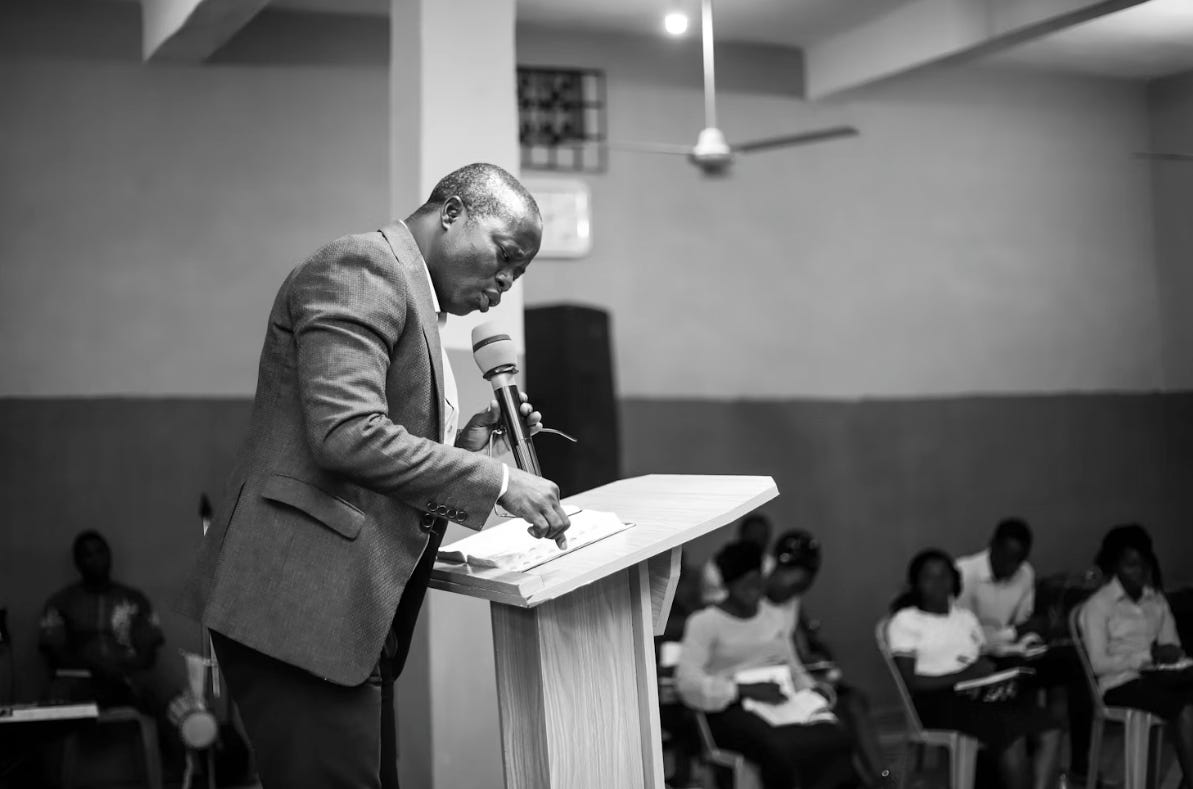Finding God's Voice In The Midst of Shouting:
An Open Letter to My Fellow Preachers
Dear Fellow Pastors,
As we prepare to enter our pulpits this Sunday, we carry the weight of a nation once again shaken by political violence. The assassination of Charlie Kirk at Utah Valley University and the subsequent arrest of his alleged killer has left our communities reeling, our congregants confused, and our nation more divided than ever. In this moment, we face a profound pastoral challenge: How do we preach the gospel when the very air seems thick with anger, fear, and partisan rage?
This has been a hard week for America. The images from Utah Valley University, the manhunt that captivated the nation, and the ultimate arrest have dominated our news cycles and our dinner table conversations. Some in our congregations are grieving the loss of a voice they admired; others may feel conflicted about how to process this tragedy given their own political perspectives, and still others think of imprecatory Psalms prayed in the hope of the demise of God’s emenies. Still others are simply exhausted by the seemingly endless cycle of political violence that has marked our recent years, but are America's foundational story. All to say, there are great differences in our pews and we are called to pastor to them all.
But here, in this moment of national fracture, we must remember our primary calling. We are not political commentators or partisan advocates. We are heralds of the gospel, ambassadors of reconciliation, and shepherds called to lead people toward the heart of God—not toward the false promises of political ideology. Our vocation is to proclaim the realities of the with-God life, even amongst difference and division.
The temptation will be strong this Sunday to either ignore what has happened or to allow our own political leanings to color our preaching. Some may feel pressure to condemn or defend, to take sides or to offer easy answers to complex questions. But our calling is higher and deeper than the political divisions that seem to consume our public discourse.
Instead, we must preach from the profound center of our faith: that God's heart breaks when any of His children are lost to violence, regardless of their political affiliation. We must proclaim that the kingdom of God transcends every earthly kingdom, every political party, and every ideological framework we might construct. We must remind our people that our ultimate allegiance is not to red or blue, but to the One who calls us to love our enemies, pray for those who persecute us, and seek first His kingdom and His righteousness.
This does not mean we preach a toothless gospel devoid of prophetic edge. The Hebrew prophets consistently called out injustice and spoke truth to power. But they did so from a place of covenant love, always pointing toward God's ultimate desire for restoration and peace. Our preaching must similarly call our congregations away from the seductive but ultimately destructive path of political tribalism (which, sadly is the foundation of American evanglicalism) and toward the radical alternative of Christian community.
Jesus savvily navigated the political tensions of His own day. He refused to be co-opted by either the religious establishment or the revolutionary movements, instead offering a third way that confounded both his critics and his followers. When asked about paying taxes to Caesar, He pointed to a deeper reality: the image of God stamped on every human heart.
This Sunday, our congregations need to hear that there is indeed a way forward that doesn't require choosing between competing political loyalties. They need to be reminded that the gospel offers resources for healing that no political platform can provide. They need to be called back to the fundamental practices of Christian discipleship: prayer, forgiveness, hospitality to the stranger, care for the vulnerable, and the pursuit of peace.
We must acknowledge the pain and confusion many feel without allowing that pain to drive us toward further division. We can grieve the loss of life without demonizing those who see the world differently than we do. We can grieve the loss of life without making the deceased an undue hero. We can call for justice without succumbing to the spirit of vengeance. We can work for peace without naively ignoring the real issues that divide us.
Most importantly, we must invite our people to remember that their primary identity is not found in their political affiliation but in their baptism. We are, first and foremost, children of God, members of a kingdom that knows no earthly boundaries, citizens of a community where the dividing walls of hostility have been broken down through the cross of Christ.
The events of this week will fade from the headlines, but the divisions they have exposed will remain. Our calling as preachers is to consistently point our people toward the healing that can only come when we return to the heart of God—a heart that beats with love for all His children, regardless of their political persuasion.
May we preach this Sunday not as Republicans or Democrats, conservatives or progressives, but as servants of the One who came to seek and save the lost, to heal the brokenhearted, and to proclaim good news to all people. In these troubled times, our congregations need nothing less than the full counsel of God, proclaimed with courage, seasoned with grace, and aimed always toward the reconciliation that only Christ can bring.
Grace and peace be with you as you prepare to proclaim this timeless gospel in these timely circumstances.
— Sean


